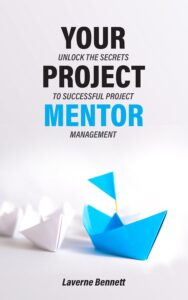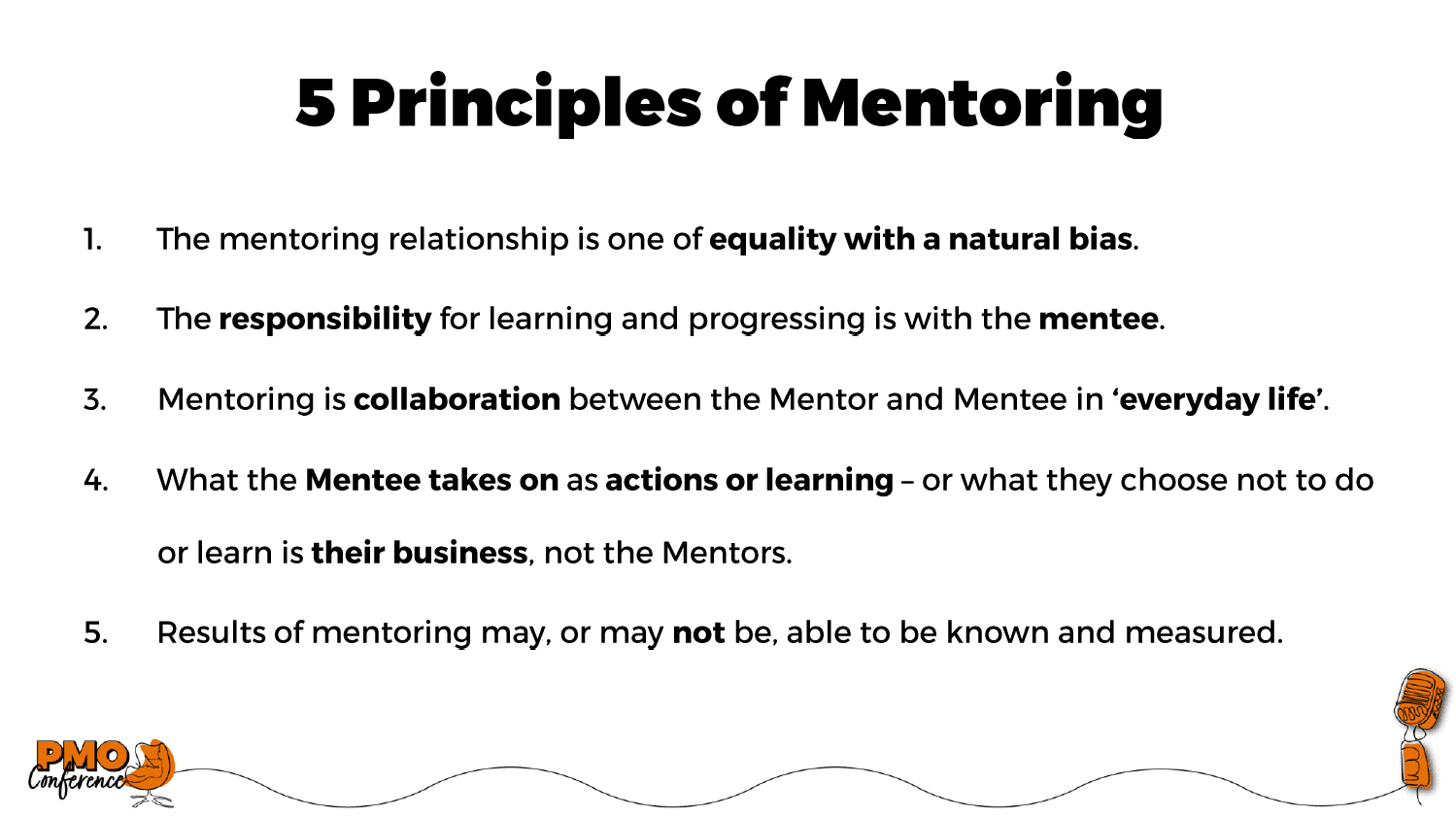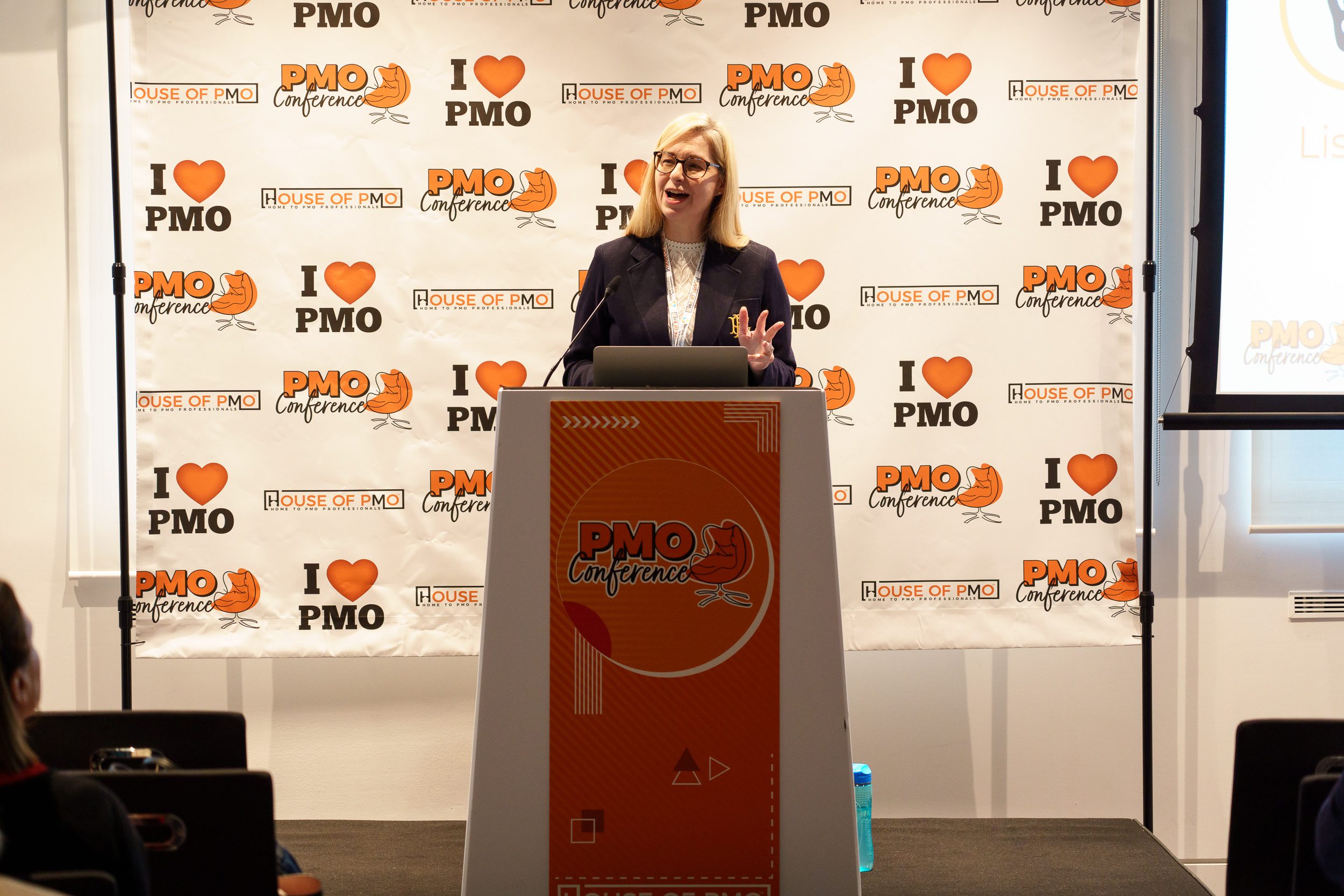Watch back all our PMO Conference sessions
From PMO Leader to Mentor
 It is one thing to lead a PMO but quite another to be a mentor providing appropriate assistance to a mentee so that your professional wisdom and logic in a project management environment will enable them to achieve their best.
It is one thing to lead a PMO but quite another to be a mentor providing appropriate assistance to a mentee so that your professional wisdom and logic in a project management environment will enable them to achieve their best.
Using personal and professional anecdotes as well as approaches in her book “Your Project Mentor”, Laverne Bennett explores mentoring: the skills needed to be effective; the value mentoring provides; and next step avenues for your exploration.
Within this session, expect to learn about:
- Skills of a mentor for audience reflection
- Importance of mentoring
- Next steps for you/your organisation’s mentoring journey
Recorded Conference Session
Presentation Deck
Download the presentation deckInsights from the Session
Graham Gunn, conference reporter, gives us his insights from the session:
This presentation covered what “mentoring” means and highlighted how it might be applied, and its potential value to a project, PMO or other organisation. It was compiled in three primary segments:
- Description of what mentoring is, and what skills are required to actualise it
- Assessments of the importance and value of mentoring to an organisation
- Approaches to implementing mentoring programs
Laverne explained the difference between “coaching” and “mentoring”
Coaching is used where the coachee is required to meet a specific skill set or performance objective. Although the coachee has to make the effort to reach the objective, the coach is ultimately accountable for the outcome.
A mentor helps a mentee achieve their goals within a defined time frame. The help may consist of providing a safe space where the mentee can recount and reflect upon their experiences as they tackle new situations and challenges. The mentor can then offer advice, feed-back or links to other forms of support, to assist in the mentee’s decision making and action plans.
A mentor is not responsible for the performance of the mentee, and indeed, the results of mentoring may not be directly quantifiable or even be recognised – in the short term at least.
Laverne referred to the “5 Principles of Mentoring” as laid out in Julie Starr’s book The Mentor’s Manual, and reviewed the key skills that mentors should have in order to be effective.
At an individual level, the benefits of mentoring seemed mostly related to developing soft skills such as experience in establishing and maintaining working relationships, learning the value of integrity and trust, increasing confidence, and of course achieving their goals, which in turn helped career progression.
 At the organisational or corporate level, mentoring benefits are spread much wider. For example, an organisation known for nurturing its staff, gets known as a good employer and attracts the best candidates, who then rapidly become more engaged, capable and productive, which results in lower staff turn-over, and assists in succession planning. Ultimately, these factors benefits “the bottom line”. Apparently, over 70% of Fortune 500 companies have now established mentoring programs.
At the organisational or corporate level, mentoring benefits are spread much wider. For example, an organisation known for nurturing its staff, gets known as a good employer and attracts the best candidates, who then rapidly become more engaged, capable and productive, which results in lower staff turn-over, and assists in succession planning. Ultimately, these factors benefits “the bottom line”. Apparently, over 70% of Fortune 500 companies have now established mentoring programs.
So, if you think your PMO or corporation could benefit from a mentoring program, Laverne suggests a series of steps and reference materials that can get you started on defining the type of mentoring that would best suit the sort of organisation you represent, and the vision, mission or objectives it has. In other words, helps you generate the business case and baseline plan for establishing a mentoring capability. Her book on the subject is called “Your Project Mentor”.
Mentoring can take many different forms, from a highly structured and monitored HR function, to more casual ad-hoc arrangements, depending on the situation, style or culture of the organisation concerned.
In my experience as a young mentee long ago, much of the interaction with the mentor was “off-line”, in the sense that there was no rigid format or schedule for interactions. Instead, issues were mulled over in the local pub or in ad-hoc meetings initiated by either of us during work days. Most of what I learned was about how to navigate around complex corporate structures and vested interests, and how to effectively communicate with the “gods” in the C-suite.
Later, as a mentor, I found that I learned at least as much from the mentees as I felt they learned from me!


